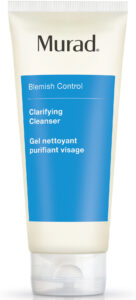By Prudence Wade
Long gone are the days we’d splash a bit of water on our face and get on with our lives: now, many of us have wised up to the world of skincare and use multiple products a day.
While thinking more about protecting our skin can only be a good thing – it is our body’s largest organ, after all – knowing exactly what to put on your face can get confusing.
It seems like we’re constantly told about new, unpronounceable ingredients we should immediately start using, and by the time you’ve bought everything that’s supposedly good for your skin, you’re piling on 12 products a night.
This can be expensive and perhaps even irritating for your skin – which is why a new trend has emerged to combat these complicated, multi-step routines: skin minimalism.
What is it? “Using the minimum amount of skincare products to achieve a basic skincare routine,” explains Dr Shaaira Nasir, consultant dermatologist at sk:n.
“Skin minimalism can save you money and time,” says Nasir. “Additionally, it reduces the chance of causing irritation from using too many products, or of using products that aren’t needed (they can overlap in use and function).”
The pandemic caused many of us to move away from make-up and get more invested in the self-care rituals of skincare. However, falling into the trap of using too many products is something Nasir sees time and time again. She says many of her clients are “continuously adding more steps into their routine over time, either because they feel like they aren’t getting the results they want, or because they think more is better. Following trends can contribute to this as well – for example, the 10-step Korean beauty trend.”
Layering on too many products comes with potential dangers: it can cause irritation, Nasir says, “which can lead to breakouts and worse conditions like acne, rosacea and eczema”.
Instead, Nasir recommends taking things slow. Instead of binning all the products in your routine, take them out one at a time – waiting a few weeks in between changes – so you can really analyse whether a product has been helping or harming your skin.
She also advises “knowing what your skin type is, and picking product ranges accordingly” – for example, if you have oily skin, look for specifically-formulated products.

Clarifying Cleanser, £27, available from Murad. PA Photo/Handout.
Everyone’s skin is different – consult your GP or a dermatologist if you have questions – but for Nasir, there are three basic products everyone should have in their armoury to build a solid, but simple, skincare routine: a good cleanser, moisturiser and sunscreen (SPF 30 or above).
When trying a new routine, don’t expect to see changes straight away. “Usually, you should wait eight weeks before seeing the full results of a product,” Nasir says.
When deciding what products to use it’s handy to know your skin type. “When it comes to cleansers, dry skin needs more hydrating or milky cleansers, while oily skin might use foaming cleansers,” recommends Nasir.
For moisturisers, she suggests dry skin will benefit from moisturising creams, while “oily skin may want to use a lotion or hydrating serum – something that won’t block pores”.
And lastly, for SPF – only needed in the mornings, after you’ve washed and moisturised – Nasir recommends a gel sunscreen for oily skin, and everyone else will be fine with a regular cream or fluid.
If you want to go a step further than these basic three issues, Nasir recommends using a chemical exfoliant once or twice a week. “Depending on skin type, oily skin can tolerate more and are better suited to using a BHA (beta hydroxy acid),” she says. “For anti-ageing skincare, I recommend adding in a vitamin C serum in the morning, and retinoid at night.”
This would mean adding in more products – so be careful, go slow, and remember this is all about stripping things back, not adding in as many ingredients as you can.
“Depending on what your skin condition is like, you may need a specific targeted treatment that uses active ingredients,” Nasir says. “If you are unsure, it is best to consult a dermatologist to avoid using the wrong products and wasting money on many unnecessary products in the long term.”







Click here to change your cookie preferences